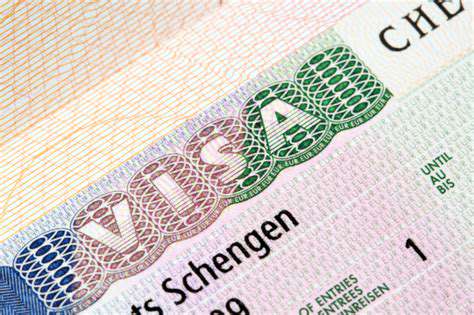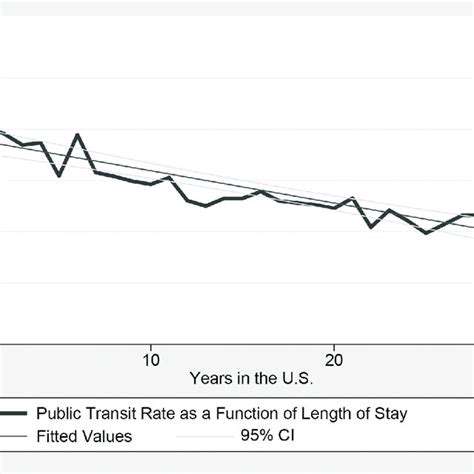Guide to Visa Requirements for Schengen Area Transit
What is the Schengen Area Transit Visa?

What is Schengen Area Transit?
The Schengen Area Transit is a special visa-free travel provision allowing non-Schengen Area citizens to pass through a Schengen country without needing a visa, provided their ultimate destination is outside the Schengen Area. This is different from a Schengen visa, which permits entry and stay within the Schengen zone. Crucially, the purpose of the transit is to pass through, not to stay or engage in activities within the Schengen country.
Transit through a Schengen country is a practical solution for travelers with connecting flights or journeys that require a brief stopover. It simplifies travel arrangements, allowing passengers to quickly move between airports or border crossings without the need for separate visa applications for each country.
Eligibility Criteria
Individuals are eligible for Schengen Area Transit if they have a confirmed onward ticket to a non-Schengen country. This means that the traveler must have a confirmed flight or other transportation arrangements that will take them beyond the Schengen area.
Furthermore, the stay duration is limited to the time necessary to complete the transit. The exact time frame can vary depending on individual circumstances but must be justified by the flight schedule or travel plan.
Duration of Stay
The duration of the stay for transit is strictly limited to the time needed to complete the journey. This is not a visa to stay in the country. Any deviation from this crucial rule could lead to complications at the border or even the denial of future visa applications.
Usually, this period is determined by the flight schedule or travel itinerary. The authorities will assess the time needed for the transit, and the traveler must remain within those parameters.
Required Documents
To be granted transit through the Schengen Area, travelers are typically required to present valid travel documents, including a passport with a sufficient validity period. This passport must be valid for at least three months beyond the intended stay. Other supporting documents, such as onward tickets and proof of accommodation, might also be requested.
The specific documents required can vary depending on the Schengen country and the traveler's nationality. Therefore, it is crucial to check the requirements of the specific country(ies) included in the transit route.
Transit Through Multiple Countries
The Schengen Area Transit provision permits travel through multiple Schengen countries as long as the ultimate destination remains outside the Schengen Area. This is a convenient option for travelers with connecting flights or journeys that require passing through multiple countries.
Travelers should carefully plan their route and ensure their documents align with the transit rules of each Schengen country they will be passing through.
Airport Transit
Airport transit is a common application of Schengen Area Transit. This allows travelers to pass through a Schengen airport without needing a visa, provided they do not leave the airport area. This is a critical distinction, as remaining within the airport confines is essential to qualify for the transit.
Airport transit permits are particularly useful for connecting flights, significantly streamlining the travel process. It also avoids the need for a separate visa for a stopover.
Important Considerations
It is vital to understand that the Schengen Area Transit is not a visa to reside in any Schengen country. Any violation of transit rules may lead to delays, complications, or even denial of future applications.
Travelers must meticulously review the rules and regulations of each Schengen country they intend to transit through. This involves checking the specific requirements for their nationality, the duration of the stay, and the necessary documents to ensure a smooth and compliant journey.
Who Needs a Schengen Transit Visa?
Who is Exempt from the Schengen Transit Visa Requirement?
Citizens of certain countries are exempt from the Schengen transit visa requirement. This typically includes individuals holding valid passports from countries that have visa-free agreements with the Schengen Area. The specific countries and exemptions can change, so it's crucial to check the most up-to-date information on the official Schengen Area website or with your local embassy. Verification of your passport's validity and adherence to the necessary transit rules are essential for seamless travel.
Duration of Stay and Transit Requirements
The length of time you can spend in the Schengen Area during transit is limited. This timeframe is generally short, allowing for necessary travel time between connecting flights or other arrangements. Exceeding this timeframe might require a visa, and careful adherence to the specific rules is vital. It's crucial to plan your transit carefully and have all necessary travel documents and schedules readily available to avoid potential delays or problems during your journey.
What Documents Are Required for Transit?
To avoid any delays at the border, ensure you have all the necessary documents with you. This includes a valid passport, return or onward ticket, proof of sufficient funds for your stay, and any other required documentation depending on your nationality or the purpose of your transit. The specific documents required can vary, so consulting the relevant authorities or the official Schengen Area website is highly recommended to avoid complications before your travel.
Importance of a Valid Passport
A valid passport is a fundamental requirement for any international travel, and this is especially true when traveling through the Schengen Area. The passport must be valid for at least three months beyond your intended stay. Ensure that your passport has sufficient empty pages to accommodate the necessary visa stamps or entry/exit records. Without a valid passport, you won't be permitted entry into the Schengen Area.
Checking Visa Requirements by Nationality
Your nationality plays a significant role in determining whether you require a Schengen transit visa. Different countries have varying visa requirements, and it's imperative to verify if your passport holds visa-free access to the Schengen Area. Consulting the official website of the Schengen Area or your local embassy is highly recommended to determine your specific requirements and avoid potential complications with the authorities.
Understanding the Purpose of Transit
The purpose of your transit through the Schengen Area significantly influences the visa requirements. If your transit is for a connecting flight, the requirements might be different from those for a longer layover. Understanding the specific purpose of your visit and ensuring you comply with the relevant rules and regulations is crucial. You must be able to demonstrate your transit through the Schengen Area for the stated purpose.
Airline Responsibility for Visa Information
While you are responsible for ensuring you meet all visa requirements, the airline you are booking with should have information about visa requirements for the country you are flying through. Airlines often have resources or information on their websites that outline the necessary visa procedures for passengers. Checking with your airline is a good starting point to understand your responsibilities and requirements for traveling through the Schengen Area.
Duration of Stay and Transit Rules

Understanding Visa Requirements
Visa requirements for international travelers are crucial for ensuring legal stay and transit. These requirements often vary significantly depending on the nationality of the visitor and the destination country. Understanding these prerequisites is essential to avoid potential issues during the travel process. A thorough review of the specific visa requirements for your destination is paramount before booking your trip.
It's important to remember that visa application processes can take time. Allow ample time to complete the application forms, gather necessary documents, and schedule any required interviews. Delays in obtaining a visa can significantly impact travel plans, so it's crucial to plan ahead.
Transit Rules and Regulations
Transit rules are specific regulations that govern the movement of travelers through a particular country. These rules often dictate the maximum duration a traveler can stay in the country as a transit passenger. It's essential to understand these transit rules to avoid any legal complications and to ensure a smooth travel experience.
Different countries have different transit rules, and it's vital to check the specific regulations for the country you're transiting through. These regulations can vary based on the type of visa a traveler holds. Carefully review the rules to ensure compliance with the local regulations.
Duration of Stay for Tourists
The duration of stay permitted for tourists is a significant aspect of international travel. It's crucial for travelers to understand the specific timeframes allowed for tourism within a particular country. Exceeding the permitted duration of stay can lead to legal consequences, including fines or even deportation.
The permitted stay duration often depends on several factors, including the type of visa obtained, the purpose of the visit, and the specific regulations of the country. It's important to refer to the official government websites or embassy contacts to get the most accurate and up-to-date information regarding the permitted stay duration.
Considerations for Business Travelers
Business travelers also need to be aware of specific regulations regarding the duration of their stay. These regulations often differ from those for tourist visits and can depend on the type of business activity being conducted. It's crucial for business travelers to understand the specific rules governing their stay before embarking on their trip.
Understanding the visa requirements, transit rules, and the permitted duration of stay is crucial for any international traveler. Failure to adhere to these regulations can result in complications and delays.
Extension of Stay Procedures
In certain circumstances, travelers may need to extend their stay beyond the initial permitted duration. Understanding the procedures for extending a stay is crucial for avoiding any legal issues. These procedures vary significantly from country to country. It's essential to have a clear understanding of the requirements and deadlines involved in the extension process.
Thorough research and meticulous planning are essential when seeking to extend a stay. Contacting the relevant authorities or immigration departments well in advance of the expiry date of the initial visa is recommended.
![Planning a Family Camping Trip [Beginner's Guide]](/static/images/27/2025-04/MakingtheMostofYourCampingExperience.jpg)









![How to Pack for a Business Trip [Efficiently]](/static/images/27/2025-07/DocumentsandEssentials3AStreamliningYourPreparation.jpg)
